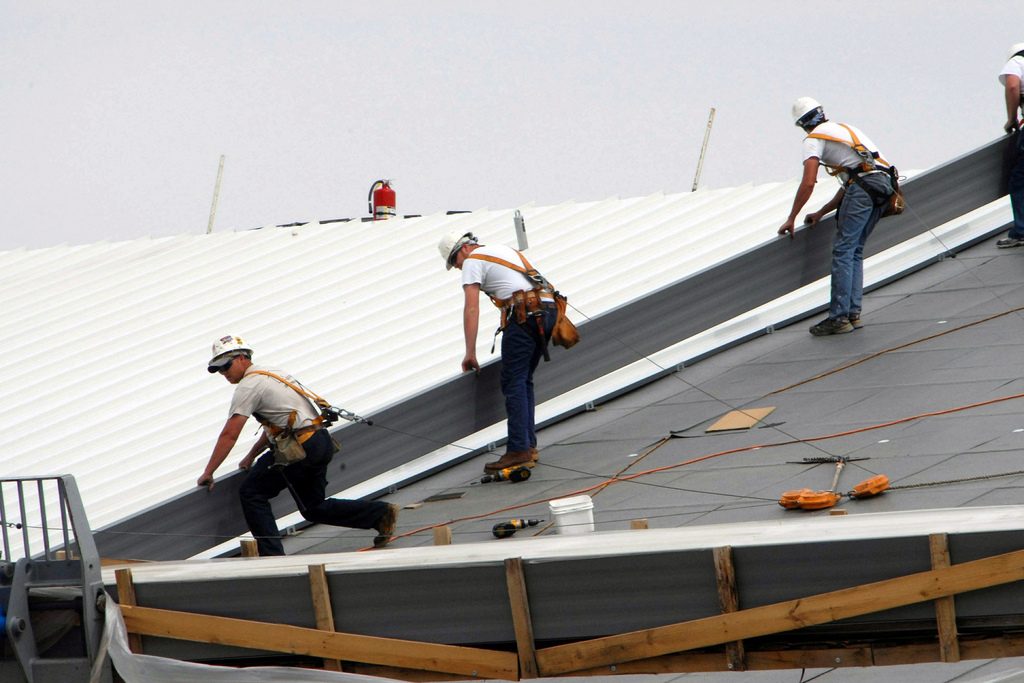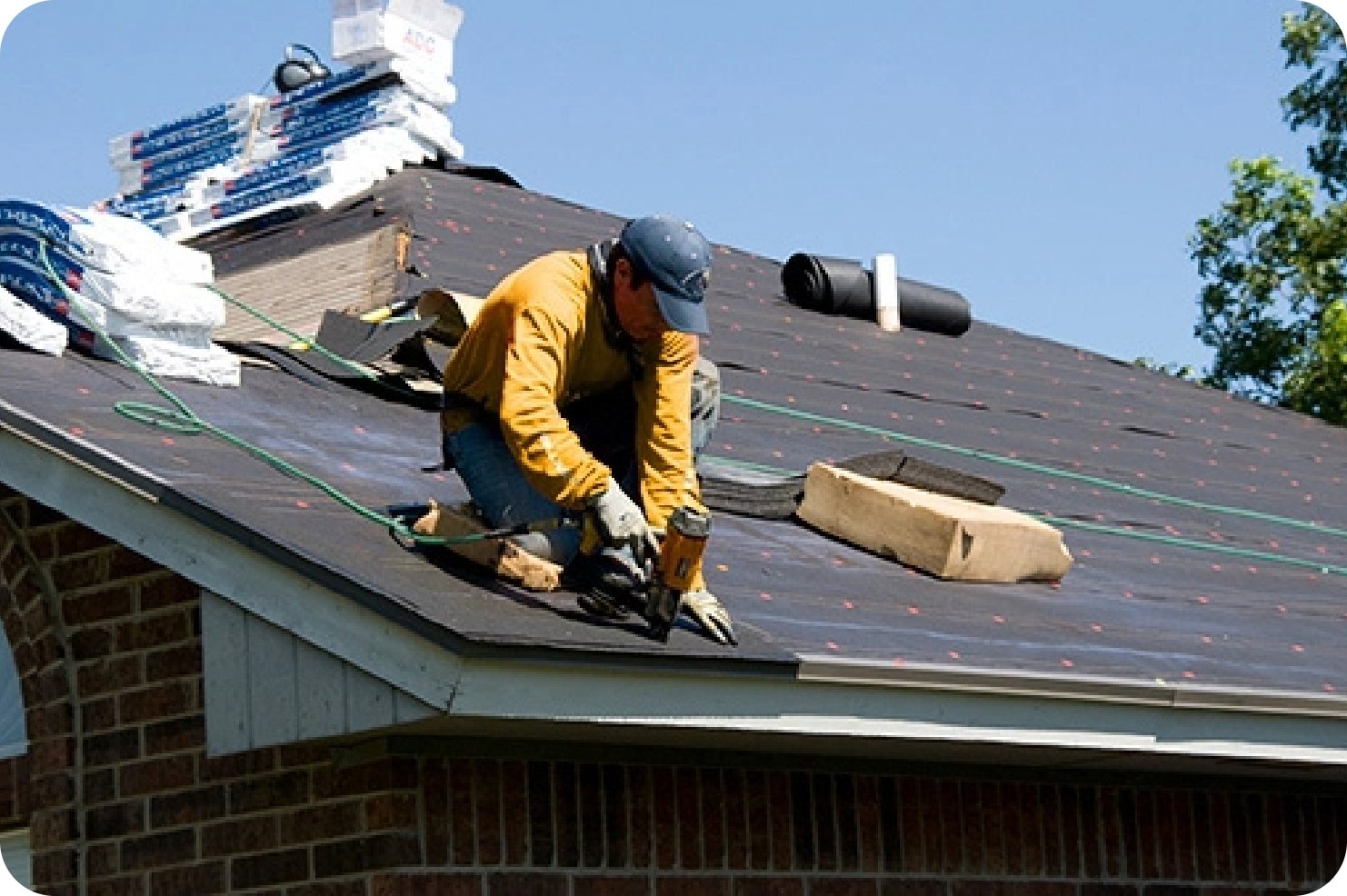Work with a reliable Sylvania Roofing Contractor to enhance the performance of your roof.
Work with a reliable Sylvania Roofing Contractor to enhance the performance of your roof.
Blog Article
Just How to Evaluate Various Roof Alternatives for Your Building Needs
Reviewing roof options for your building requires a thorough technique that thinks about different aspects such as the intended usage of the structure, local environment conditions, and product qualities - Roofer. It is crucial to evaluate the advantages and downsides of various roofing types, from asphalt tiles to steel and clay ceramic tiles, while additionally factoring in initial prices and long-lasting upkeep.
Examining Your Building's Needs
To properly assess roof alternatives, start by thoroughly analyzing your building's requirements. Start by taking into consideration the building's planned use, as different structures may demand varying roofing specifications. As an example, domestic roofing systems frequently focus on aesthetics and insulation, while business structures might concentrate on sturdiness and load-bearing ability.
Following, evaluate the neighborhood climate conditions that will influence roof covering performance. Variables such as temperature variations, precipitation degrees, and wind patterns can affect material selection and design. A roofing system that succeeds in a warm environment might not carry out as well in locations vulnerable to hefty snowfall or severe heat.
In addition, evaluate the structural honesty of your building. Ensure that the existing framework can support the chosen roof materials, especially if taking into consideration larger choices. It is likewise crucial to review any type of neighborhood structure codes or guidelines that may dictate details requirements for roof.

Contrasting Roof Covering Products
As soon as a thorough assessment of your building's needs has actually been finished, the next step involves comparing numerous roofing materials. Each product supplies distinctive benefits and negative aspects, making it important to straighten your selection with your details demands and conditions.
Asphalt tiles are commonly acknowledged for their cost and ease of installation, making them a popular alternative for domestic buildings. On the other hand, steel roof, understood for its resilience and durability, can endure severe weather yet might come with a greater preliminary investment.
Clay and concrete ceramic tiles provide excellent thermal insulation and visual charm, especially for Mediterranean-style design, yet they require an even more robust structural assistance as a result of their weight. Wood drinks offer a natural appearance and great insulation properties yet might demand a lot more maintenance and are prone to fire dangers.
Assessing Cost and Budget Plan
Analyzing your roof covering options requires a careful analysis of expense and spending plan considerations. The general budget plan for a roofing job consists of several aspects, including material prices, labor expenses, maintenance, and potential long-lasting cost savings. It is essential to develop a clear budget before discovering details roof materials, as this will assist the decision-making procedure and help you prevent overspending.
Begin by obtaining quotes from several contractors to recognize labor costs in your region. Guarantee that these quotes include all required services, such as removal of the old roofing system, installment, and any kind of additional features, like insulation or ventilation renovations - Roofer. Next, evaluate the expense of numerous roof covering products, taking right into account both preliminary installation costs and expected lifespan

Comprehending Energy Performance
Energy performance plays a critical role in the choice of roof products and systems, considerably impacting both energy consumption and total comfort within a structure. An appropriate roof covering can boost thermal performance, minimizing the demand for home heating and cooling down systems, which subsequently lowers energy bills and minimizes environmental influence.
When reviewing roof covering alternatives, take into consideration materials that reflect rather than absorb warmth. Light-colored or reflective roofing items can considerably lower roofing system surface temperatures, leading to reduced energy use during hot months. In addition, correct insulation and ventilation are important to enhance the energy performance of the whole roof covering system. Insulation prevents warm transfer, while air flow minimizes heat buildup in the attic room area.
Another crucial element is the roof system's durability and maintenance demands. Sturdy materials that require much less constant substitute add to long-lasting power savings. The energy effectiveness of a roof system can likewise be assessed with its conformity with well established sustainability scores such as ENERGY STAR or LEED.
Thinking About Aesthetic Allure
A roof covering's aesthetic charm substantially affects the total appearance of a structure, matching its building design and enhancing visual appeal. Perrysburg Roofer. When evaluating roof covering options, it is important to consider how the chosen product, color, and layout will harmonize with the existing framework and neighborhood. A properly designed roof can other raise even the simplest of structures, transforming them into visual prime focus
Different roofing materials use various visual top qualities. Typical tiles may evoke a classic charm, while metal roofing can give a modern, streamlined look. Additionally, the shade of the roof covering material plays a crucial role; lighter tones can make a structure show up even more sizable, while darker tones might produce a cozier atmosphere.
Additionally, building aspects, such as dormers and eaves, can improve the roofing system's aesthetic impact. It is suggested to talk to expert designers or architects Discover More Here to ensure the picked roof covering option straightens with the total style intent. Ultimately, a roofing system must not just supply practical benefits but additionally contribute positively to the structure's aesthetic, mirroring the owner's taste and the personality of the surrounding atmosphere.
Conclusion

Report this page